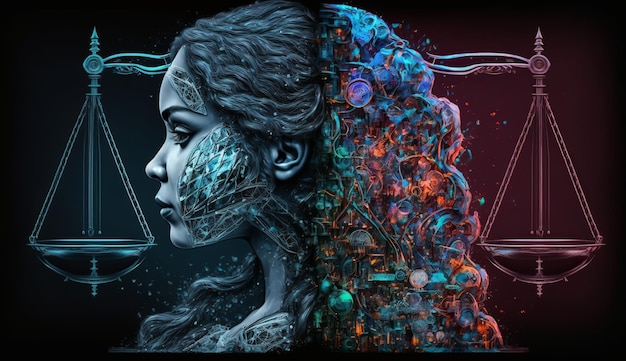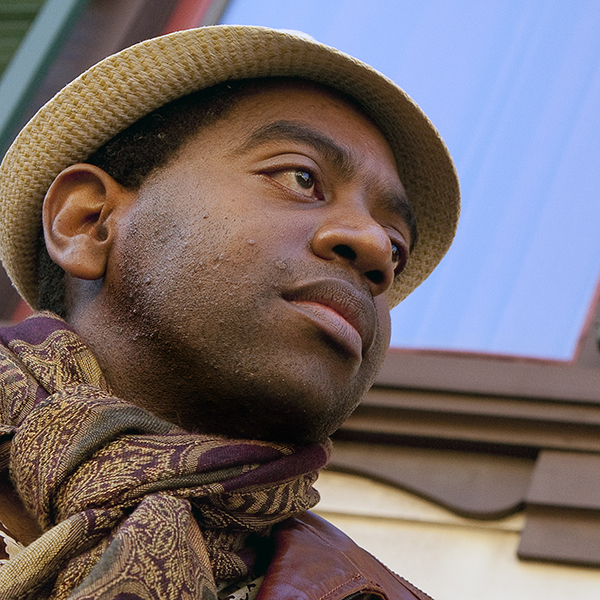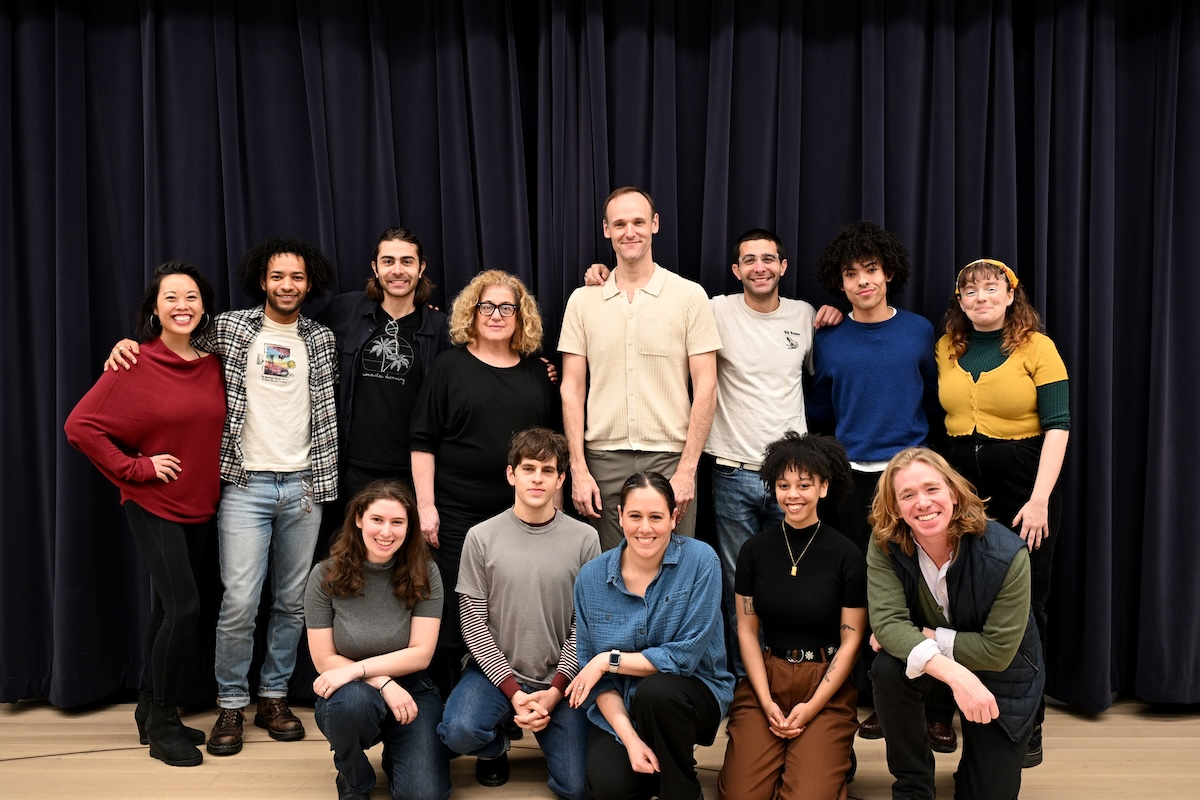AI and social justice are increasingly intertwined in our rapidly evolving technological landscape. Renowned sociologist Ruha Benjamin argues that rather than a dystopian future, we have an opportunity to reimagine society through the lens of social justice and AI. She emphasizes that the promises made by tech elites, who often frame AI advancements as altruistic, are frequently misplaced and stem from self-interest. The discussion around AI ethics cannot ignore the real-world implications of technologies like facial recognition, which disproportionately impact marginalized communities. Benjamin’s call for imagination in technology challenges us to think beyond conventional solutions and consider how AI can truly serve the greater good.
The intersection of artificial intelligence and equity has become a crucial conversation in contemporary society. Scholars and advocates like Ruha Benjamin highlight the need for ethical considerations in AI development, pushing for a future where technology aids social justice rather than exacerbating disparities. Many proponents of advanced tech frame their aspirations as positive, yet fail to account for the societal consequences, suggesting a need for a more critical approach. By rethinking the narratives surrounding technological innovation, we can explore how systems of machine learning might either reinforce societal inequalities or help dismantle them. This ongoing discourse prompts us to envision a world shaped by inclusivity and justice, where technological advancements benefit everyone.
The Intersection of AI and Social Justice
Ruha Benjamin’s insights on the intersection of AI and social justice emphasize how technology should not merely reflect existing power dynamics but challenge them. As AI technologies become integral to societal decision-making, their deployment often exacerbates inequalities faced by marginalized communities. This raises crucial questions about the accountability of tech companies and the societal impacts of AI. Benjamin argues for a more equitable approach, where the voices and needs of marginalized groups are prioritized in the development and application of these technologies.
Moreover, the idea that AI can operate independently of human biases is a misconception that perpetuates social injustice. While proponents tout AI as a neutral arbiter of decisions, Benjamin points out that the algorithms are created by people who carry their own biases. Hence, without conscious intervention, AI systems risk becoming tools that reinforce historical oppressions rather than break them. This recognition calls for an urgent need for ethical frameworks in AI development that prioritize social justice as a fundamental pillar.
The Ethical Implications of AI Technology
AI ethics is a crucial field that examines the moral implications surrounding artificial intelligence systems. Ruha Benjamin advocates for a more inclusive discourse around AI ethics, urging that it should extend beyond technical parameters to incorporate perspectives from the humanities and social sciences. This cross-disciplinary approach to AI ethics can lead to the development of technological solutions that genuinely serve the collective good rather than merely the interests of the elite.
Furthermore, Benjamin highlights the troubling trend of viewing AI as a cure-all for complex societal issues. Her critique points to the essential need for ongoing scrutiny of how these technologies are designed and who benefits from their deployment. The potential harms, such as surveillance and displacement, must be weighed against aspirational goals like efficiency and innovation. By embedding ethical considerations into the fabric of technological advancement, we can aspire to a future where AI contributes to social equity rather than deepening divides.
Envisioning a Future Beyond Dystopia
In her talks, Ruha Benjamin challenges the prevailing narrative that associates technological advancement with dystopian outcomes. By positing an alternative vision, she encourages collective imagination where AI serves constructive and liberating roles in society. The future of technology does not have to be solely dictated by the whims of billionaires; rather, it can be shaped by community-driven initiatives that prioritize well-being over profit. Benjamin argues that we must cultivate a vision of technology that promotes empathy and social responsibility.
The key to realizing this vision lies in fostering creativity, particularly within educational institutions. Benjamin urges universities to integrate arts and humanities into technological discourse, as imagination plays a crucial role in rethinking societal structures. By nurturing creative thought, we can envision systems that prioritize human connection and cultural richness rather than technocratic efficiency. The invitation to reimagine our future thus becomes an invitation to dream boldly, transcending boundaries and embracing inclusivity.
Rediscovering Humanity in Technology
As we navigate the complexities of modern technology, the importance of humanistic inquiry becomes ever more apparent. Ruha Benjamin points out that technological solutions must not only address efficiency but also resonate with human experiences and values. By adopting a perspective that prioritizes human dignity, the discourse around AI can shift from mere functionality to holistic well-being. This approach challenges the dehumanizing tendencies often associated with technological progress.
Benjamin’s call to re-integrate humanities into technological discussions emphasizes the need for empathy in the design and application of AI. This human-centric focus encourages technologists to consider the social implications of their work, ultimately shaping technology that uplifts rather than marginalizes. By honoring the diverse narratives and experiences of individuals, we can forge a future where technology complements our shared humanity.
The Role of Creativity in Technological Innovation
Creativity is not just the realm of artists and writers; it plays a critical role in the development of technology. Ruha Benjamin insists that the tech world must value imaginative thinking and innovative approaches to problem-solving. By fostering creativity in technological development, we can challenge the status quo and build solutions that are not only effective but also socially responsible. This creative engagement allows for the rethinking of existing paradigms surrounding AI and opens doors to new possibilities.
Moreover, encouraging creative collaboration among diverse groups can lead to groundbreaking advancements that transcend traditional limitations. Benjamin advocates for a more curious approach towards technology that encourages asking transformative questions rather than merely addressing existing deficiencies. By envisioning radical alternatives to current systems, we can inspire a generation of thinkers who are willing to disrupt norms for the betterment of society.
AI and the Quest for Ethical Prosperity
The quest for ethical prosperity through AI is a cause championed by Ruha Benjamin, who argues for a future where technology uplifts every segment of society rather than exacerbating existing disparities. To achieve this, it is crucial to embed ethical considerations into every stage of AI development, ensuring that technology is created with the intention of fostering social justice. This perspective challenges tech companies to align their innovations with the broader principles of equity and fairness.
As we anticipate the future of technology, Benjamin posits that ethical prosperity is attainable through collective effort and conscious design. By actively involving communities in the technological development process, we can create platforms that reflect diverse needs and aspirations. Such an inclusive framework champions a vision of AI that prioritizes human well-being over profit—thereby fostering a truly sustainable and equitable future.
Challenging Technological Elitism
Ruha Benjamin calls for a critical examination of the technocratic elite and their influence on the narrative surrounding AI. She argues that the concentration of power within a small number of tech giants leads to a dangerous cycle of uninformed decision-making that neglects the broader societal implications. This elite-driven approach not only hinders progress toward social justice but also narrows the scope of potential solutions to societal challenges.
To counteract this elitism, Benjamin advocates for democratizing technological discussions and emphasizing the importance of inclusive dialogue. Engaging diverse communities in the conversation can lead to more comprehensive understandings of technological impacts, ensuring that marginalized voices are heard and valued in shaping a more equitable digital landscape. This shared responsibility can empower individuals to take control of the narrative around technology, fostering a culture of accountability and creativity.
Rethinking AI Development Frameworks
As AI continues to evolve, Ruha Benjamin emphasizes the necessity to rethink existing development frameworks that govern its creation and deployment. Current model focuses often cater to efficiency and profitability, sidelining critical social implications and ethical considerations. Benjamin argues that we must establish new paradigms that prioritize the needs of communities and promote well-being.
Implementing frameworks that are centered around social justice can lead to technological innovations that reflect collective interests rather than those dictated by a select few. Benjamin’s call to action invites technologists and policymakers to engage in meaningful conversations that challenge the status quo and encourage a collaborative approach to technology. As we reimagine frameworks for AI development, we can create systems that not only advance technology but also uplift the humanity it serves.
Creating Spaces for Collaborative Dialogue
In her discussions about the future of technology, Ruha Benjamin stresses the importance of creating spaces for collaborative dialogue among stakeholders in AI. She envisions forums where technologists, ethicists, and community members can converge to discuss the social ramifications of AI advancements. Such dialogues can foster an environment of transparency and collective ownership of technology, driving home the need for accountability.
These collaborative spaces provide an opportunity for diverse perspectives to be included in the conversation about AI ethics and social justice. By inviting participation from a broad spectrum of society, the resulting discussions are more likely to address the real-world impacts of technology. As Benjamin suggests, facilitating these exchanges is crucial in building a more inclusive future that serves everyone equitably.
Frequently Asked Questions
How does AI impact social justice according to Ruha Benjamin?
Ruha Benjamin argues that AI often perpetuates oppression, with technologies like facial recognition and automated systems failing marginalized communities. She emphasizes that the narrative of AI as a morally neutral technology ignores its historical and social implications, which can exacerbate existing inequalities.
What is Ruha Benjamin’s vision for the future of technology and social justice?
Benjamin envisions a future where technology serves the collective good rather than self-interest. She encourages a reimagining of tech solutions, urging society to prioritize public goods and creative inquiry over the dystopian visions proposed by tech elites.
Why does Ruha Benjamin criticize the tech elites’ view on AI and societal progress?
Benjamin criticizes tech elites for framing their AI-driven futures as altruistic while often being motivated by profit and self-preservation. She points out that their solutions frequently lack a consideration of the social context, leading to unintended harm rather than genuine progress.
What role does imagination play in AI and social justice?
Imagination in technology is essential for envisioning a world that prioritizes social justice. Benjamin calls for creatives and thinkers to join the conversation about AI, suggesting that reimagining technology can lead to more equitable and humane outcomes.
What are the ethical implications of AI in relation to social justice?
The ethical implications of AI involve recognizing that algorithmic decision-making can reinforce historical injustices. Benjamin warns that without a comprehensive view of social dynamics, AI systems may inadvertently harm those they aim to help, highlighting the need for ethical consideration in AI development.
How can universities contribute to a socially just future with AI?
Universities can foster a socially just future by integrating the arts and humanities into technical education, promoting creativity, and encouraging interdisciplinary inquiry. Benjamin believes this approach will help address the societal issues embedded within AI technologies.
What does Ruha Benjamin mean by ‘computational depth without social and historical depth ain’t that deep’?
Benjamin implies that while AI technologies may be advanced computationally, they lack an understanding of the social and historical contexts that shape human experiences. This oversight can lead to solutions that fail to address, or even worsen, social injustices.
How does Ruha Benjamin suggest we dismantle barriers in our thinking about AI and social justice?
She advocates for critically engaging with and reimagining our current systems. By encouraging creative thought and a willingness to envision alternatives to traditional structures, we can challenge and dismantle limiting beliefs about what is possible in the realm of technology and social justice.
What examples of AI misuse in relation to social justice does Ruha Benjamin provide?
Benjamin cites facial recognition software resulting in false arrests and automated healthcare triage systems that unfairly favor certain groups, showcasing how AI technologies can have detrimental effects on marginalized communities.
| Key Points | Details |
|---|---|
| AI and Social Justice | Ruha Benjamin emphasizes that the future of AI does not need to be dystopian and urges imagination of a radically different future. |
| Critique of Tech Elites | Benjamin critiques tech billionaires, suggesting they often act out of self-interest rather than the greater good. |
| Impact of AI on Society | AI technologies often worsen oppression, with examples like biased facial recognition and healthcare triage systems. |
| Limitations of AI Decision-Making | The reliance on algorithms for decision-making can perpetuate harm towards marginalized groups. |
| Need for Diverse Perspectives | Benjamin calls for a broader range of knowledge to inform tech decisions, beyond just technical expertise. |
| Reimagining the Future | She encourages creativity and inquiry through the arts and humanities to envision a better world. |
Summary
AI and social justice are crucial considerations for our future, according to Ruha Benjamin. She challenges us to envision a world that transcends current oppressive systems. By critiquing the motivations behind AI technologies and emphasizing the need for diverse perspectives, Benjamin advocates for a collective reimagining of our societal frameworks. This approach not only addresses the shortcomings of existing technologies but also encourages a shift towards more equitable solutions that prioritize the needs of all individuals.



